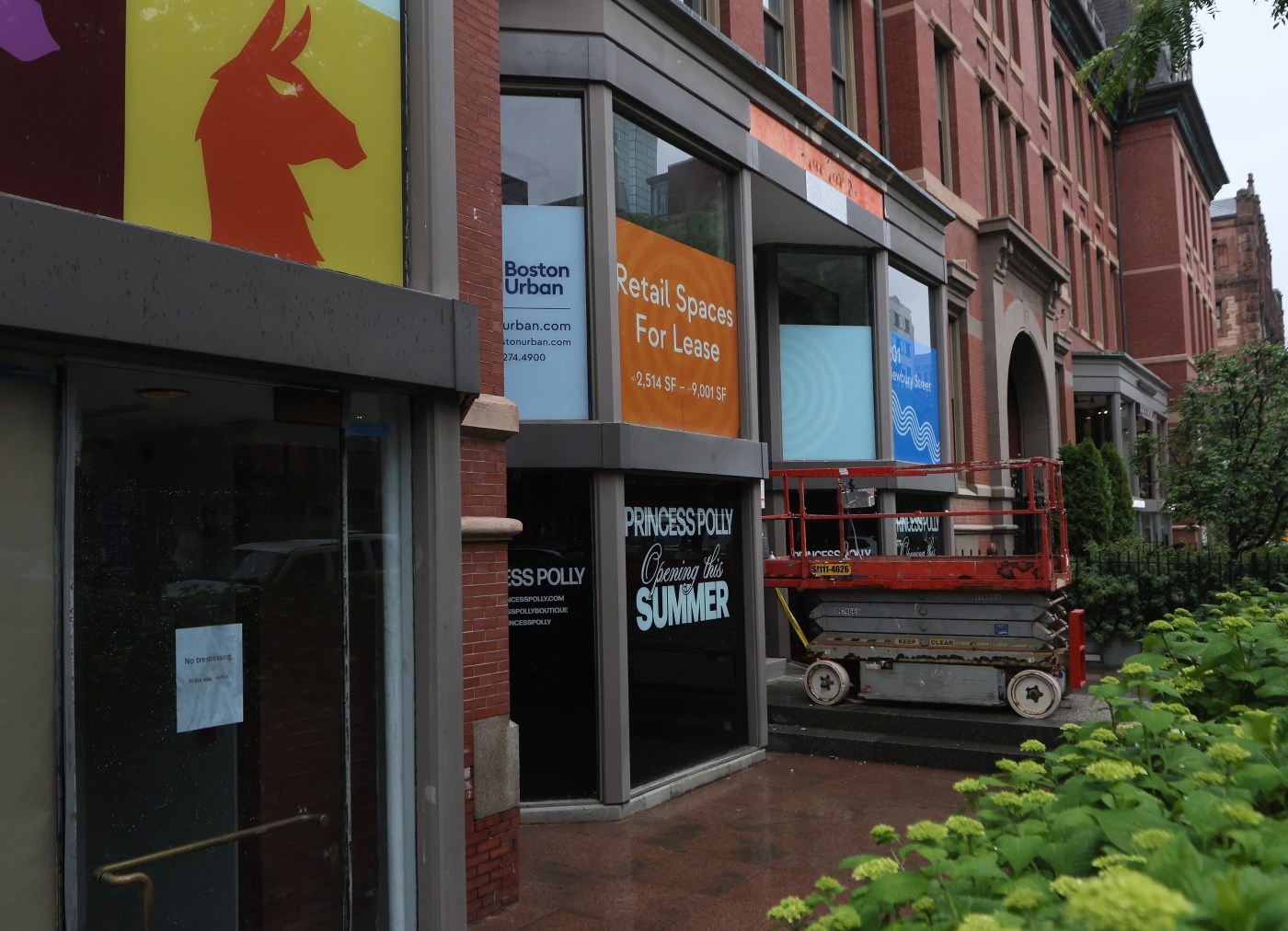
Boston mayor, team boast economic rebound amid commercial sector woes
Amid warnings that declining commercial real estate values have Boston headed toward an urban “doom loop,” Mayor Michelle Wu and her administration are touting a new report that paints a relatively rosy picture of economic rebound.
The report, authored by the Boston Planning and Development Agency, now under the purview of City Hall, describes a city that is steadily recovering from pandemic declines in downtown foot traffic, tourism and employment, and an uptick in office vacancies.
“What we see in the overall context is that cities around the country are going through a period of uncertainty, in some ways still continuing to recover from the pandemic as the remote work trends and other shifts in mobility and decision making continue to settle,” Wu said during a press briefing held ahead of the report’s Tuesday release.
“Given that national landscape, the signs that we see in Boston are very encouraging that we continue to have extremely strong fundamentals for our recovery,” Wu added, attributing the city’s economic rebound, in part, to strong public safety, clean streets, walkable communities, and good access to healthcare.
While office vacancies remain well below pre-pandemic 2019 rates, for example, Boston is actually doing better than other major cities, ranking fourth lowest in that indicator of comparable cities tracked by the commercial real estate (CRE) sector, Segun Idowu, the city’s chief of economic opportunity and inclusion, said.
The picture gets even better when it comes to employment, Idowu said, asserting that on a citywide basis, “we have not only recovered from the pandemic, but added to where we were in 2019” — to the tune of 10,000 additional jobs.
Unemployment is lower in Boston than both Massachusetts and the nation, Idowu said, before moving onto what people are spending in city businesses, which he said is nearing what was seen prior to the pandemic.
Spending in Boston is about 96% of what was seen in 2019. Although the downtown rate is lower at 90%, Idowu said that is still a “really strong and positive indicator” of strides that have been made with travel, tourism and foot traffic.
Foot traffic is about 94% of 2019 levels citywide, and about 80% in the “greater downtown area,” for example, Idowu said.
While business travel is not so hot at Logan International Airport, and may never fully recover, international travel is nearing 2019 levels, representing a substantial source of tourism revenue, Hilina Ajakaiye, executive vice president of Meet Boston, formerly the Greater Boston Convention & Visitors Bureau, added.
“It reflects the fact that our downtown is rebounding in a positive direction and that, overall, our small businesses are benefiting from residents supporting them throughout the year,” Idowu said.
Related Articles
Boston Police, mayor to crack down on ‘unlawful and dangerous’ driving for Uber Eats, DoorDash, GrubHub
Boston raises LGBTQ+ flag, promotes Pride month event lineup
Boston Mayor Wu backs Cartwright for SJC clerk over City Councilor Murphy
Roxbury rec center that housed migrants for months will soon reopen to the public
‘Absurdly irresponsible’: Boston City Council again weighing cuts to the police department
While optimistic about the city’s economic recovery, Wu and her team couldn’t avoid acknowledging the dark cloud hanging over the discussion — the declining commercial real estate values and office vacancies that have her administration pushing for a plan that would allow the city to tax businesses beyond the state limit for the next few years to avoid what the mayor says would otherwise be a “shock” in increased residential property taxes.
While the proposal, which needs approval from the City Council and state Legislature, has been panned by business leaders who warn against the dreaded “urban doom loop” it could create by taxing a struggling commercial sector at a higher rate, Wu maintains that it will help residents, businesses and the overall economy.
“If residential taxes were to see a significant jump all of a sudden rather than a more cushioned balanced shift if that is necessary,” Wu said, “that would directly impact our ability to be spending at local businesses and participating in the economy or traveling and doing the things that we know are feeding right back into our economic stability.”
On the business side, she added, employers are often telling her about how the city’s high housing costs are impacting their ability to recruit and retain employees.
“So anything that would cause an immediate shock to that,” Wu said, “would only worsen the situation.”


